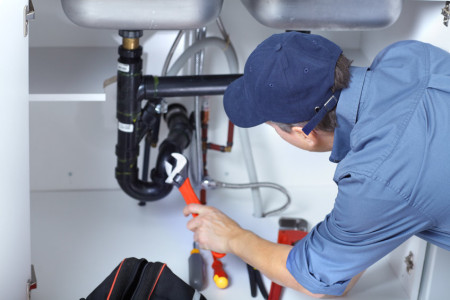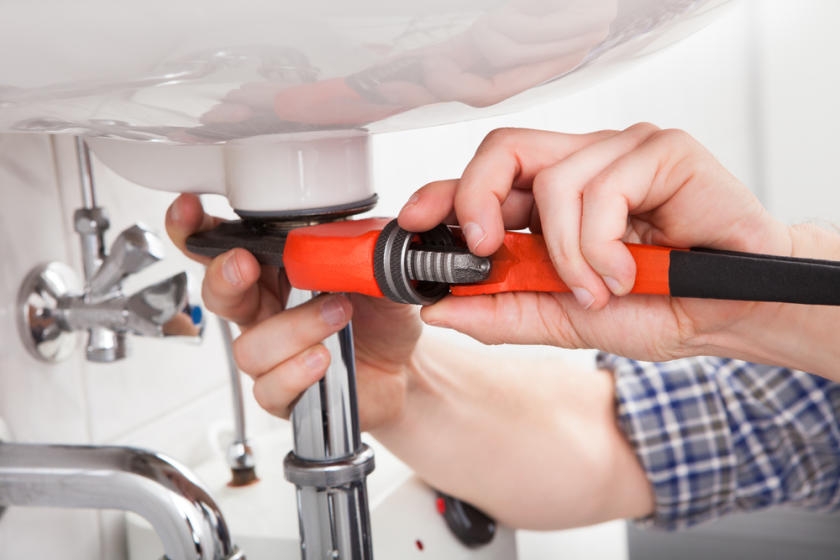Temporary Tips for Critical Situations: Steps to Follow Until Help Arrives
Temporary Tips for Critical Situations: Steps to Follow Until Help Arrives
Blog Article
Every person may have their own rationale in relation to Plumbing Emergencies: Tips on What To Do Before.

Plumbing emergencies can strike at any moment, triggering anxiety and prospective damages to your home. Whether it's a ruptured pipeline, a clogged up drainpipe, or a leaking tap, recognizing just how to handle the circumstance up until a specialist plumbing technician gets here can conserve you from additional problems. This short article provides important emergency plumbing tips to help you mitigate damages and reclaim control during a plumbing crisis.
Turn Off the Water Supply
The first step in any pipes emergency situation is to shut down the water system. For local problems, such as a leaking faucet or commode, switch off the shutoff near the fixture. In the case of a major leakage or ruptured pipeline, find your home's main water shut-off shutoff and transform it off promptly. Knowing the location of these shutoffs ahead of time can conserve important time throughout an emergency situation.
Address Little Leaks with Momentary Repairs
Small leakages can swiftly end up being significant troubles if left unchecked. Use these short-lived repairs until specialist assistance shows up:
While these fixes aren't irreversible, they can assist minimize water loss and damages.
Unclog Drains Securely
A blocked drainpipe can be a discouraging and messy concern. Below's how to tackle it:
If these approaches don't function, avoid utilizing too much force, as it might worsen the blockage.
Handle Overflowing Toilets
An overruning bathroom can create immediate chaos. Right here's what you need to do:
Shut Off Your Water Heater
In specific emergency situations, such as a ruptured pipeline, it's wise to turn off your hot water heater. This stops getting too hot or damage to the device when water quits moving. Switch off the power supply to the hot water heater (electrical or gas) and allow it cool to stay clear of prospective dangers.
Briefly Quit a Burst Pipe
A burst pipe can lead to substantial water damages in mins. To alleviate the problem:
Call a professional plumbing professional promptly to address the issue permanently.
Handle Frozen Pipes Carefully
In cooler environments, frozen pipes are an usual emergency situation. If you think a frozen pipeline:
Stop More Damages
Taking fast activity to decrease damage can save you time and money in the long run. Here's how:
. Have an Emergency Plumbing Kit
Prepare a basic plumbing emergency set to manage small concerns properly. Your package should include:
Having these tools handy can make a substantial distinction in your ability to manage emergencies.
Know When to Call an Expert.
While quick fixes can aid briefly, particular pipes issues need prompt professional attention. Call a plumbing technician if:.
Quickly calling a specialist makes certain the issue is dealt with correctly and avoids further problems.
Final thought.
Pipes emergencies can be overwhelming, however with the appropriate knowledge and tools, you can handle the scenario effectively until assistance shows up. By switching off the water, resolving tiny leakages, and using short-term repairs, you can lessen damages and maintain your home safe. Remember, these tips are short-term services; constantly get in touch with a qualified plumber to handle the root cause of the problem. Preparation and quick thinking are your best allies in any plumbing emergency.
Expert Tips for Emergency Plumbing Repairs
Plumbing emergencies can be incredibly stressful and inconvenient. Whether it’s a burst pipe, a clogged drain, or a leaky faucet, these common plumbing emergencies need immediate attention to prevent further damage to your home. But before you panic, it’s important to understand the basics of plumbing repairs and the steps you can take to address these emergencies. In this article, we will share some expert tips to help you navigate through these situations and minimize potential water damage.
Identifying Common Plumbing Emergencies
Leaky pipes and faucets Clogged drains and toilets Burst pipes Low water pressure Water heater problems Essential Tools for Plumbing Repairs
Plunger: Useful for unclogging toilets and drains Adjustable wrench: Needed for tightening or loosening nuts and bolts Pipe wrench: Ideal for gripping and turning pipes Tape measure: Necessary for accurate pipe measurements Plumber’s tape: Helps create watertight seals Understanding Emergency Plumbing Services
Emergency plumbing services are designed to provide immediate assistance for unexpected plumbing issues that can cause significant damage to your home, business, or health. These services are typically available 24/7 and are staffed by experienced plumbers who can quickly diagnose and repair a wide range of plumbing problems.
When a plumbing emergency strikes, time is of the essence. Whether it’s a burst pipe flooding your basement or a gas leak posing a serious risk, emergency plumbing services ensure that help is just a phone call away. These professionals are equipped with the tools and expertise to handle any situation, minimizing damage and restoring your plumbing system to proper working order.
What Constitutes a Plumbing Emergency?
Burst pipes or water supply lines: These can cause extensive water damage and need immediate repair to prevent flooding. Gas leaks or suspected gas leaks: Gas leaks are extremely dangerous and require prompt attention to avoid potential explosions or health hazards. Sewer backups or overflows: These can lead to unsanitary conditions and significant property damage. Clogged drains or toilets causing water to overflow: Overflowing water can damage floors, walls, and other structures. Leaks or water damage causing structural damage: Persistent leaks can weaken the structural integrity of your home or business. No hot water or heating: A lack of hot water can be more than an inconvenience, especially in colder months. Common Causes of Plumbing Emergencies
Aging or corroded pipes: Over time, pipes can deteriorate, leading to leaks or bursts. Improperly installed or maintained plumbing fixtures: Faulty installations or lack of maintenance can result in unexpected failures. Tree roots or other debris infiltrating your sewer line: Roots can grow into pipes, causing blockages and backups. Frozen pipes or water supply lines: In colder climates, pipes can freeze and burst, leading to significant water damage. High water pressure or sudden changes in water pressure: Excessive pressure can strain pipes and fixtures, causing them to fail. Natural disasters such as floods or earthquakes: These events can disrupt your plumbing system and cause severe damage. Steps to Minimize Water Damage
Locate the water shut-off valve: Knowing where the valve is can help you quickly cut off the water supply to the affected area. Turn off the water heater: If there’s a risk of water coming into contact with the heating element, make sure to turn off the water heater to avoid potential accidents. Open faucets and drain pipes: By opening faucets and drain pipes, you can relieve pressure and empty any standing water. Collect and contain water: Use towels, buckets, or bins to collect water and prevent it from spreading to other areas of your home. https://leecountyplumbingandwellservice.com/expert-tips-for-emergency-plumbing-repairs/

As a fervent reader on , I figured sharing that excerpt was a good idea. Do you know about someone else who is enthusiastic about What to Do While Waiting for an Emergency Plumber? Do not hesitate to share it. We truly appreciate reading our article about What to Do During a Plumbing Emergency.
Schedule Appointment Now Report this page